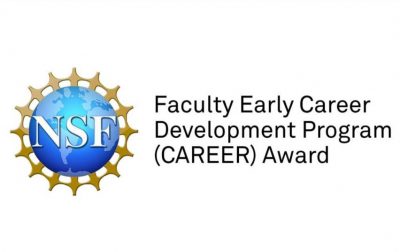
As the world of science, technology, engineering, and math (STEM) becomes increasingly computational, promoting students’ computational thinking is essential to prepare them for future STEM careers.
Neag School assistant professor of learning sciences, Ido Davidesco, has received a $1.4 million grant from the National Science Foundation to develop a month-long computational thinking unit in high school biology classes. Davidesco will work with Neag School colleagues Bianca Montrosse-Moorhead, Christopher Rhoads, and John Settlage, as well as Aaron Kyle from Columbia University’s Department of Biomedical Engineering.
The project will enhance students’ computational thinking through hands-on neural engineering experiences. Computational thinking involves strategies like using abstractions and pattern recognition to represent problems in new ways, organizing and analyzing data, breaking problems down into smaller pieces, thinking about a problem as a series of ordered steps or “algorithmic thinking,” and generalizing this process to a wider variety of problems.
“In K-12 education, computational thinking has largely been constrained to computer science and programming courses,” Davidesco, the project lead, says. “This project addresses a critical need to incorporate computational thinking into other STEM fields, in this case, biology and engineering, to introduce students to the computational nature of science nowadays.”
As part of the program students will measure their own muscle and brain activity using low-cost, wearable sensors. They will then analyze the data and design a brain-computer interface to turn neural activity into real-world output, like a mechanical claw, powered by brain activity. In addition to designing curriculum materials, the interdisciplinary project team will develop an interactive web-based app to guide students through the design process and a complimentary professional development program for teachers. Neuroscience and engineering Ph.D. students and postdocs will serve as STEM mentors for the high school students.
Read more about this story here

